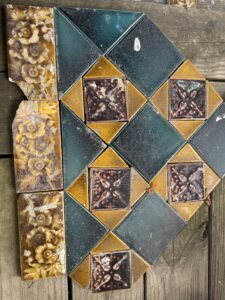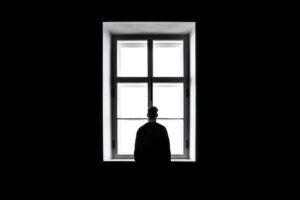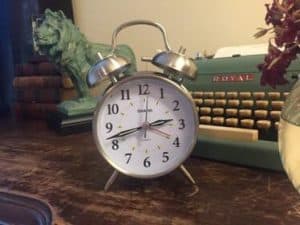“Waking up,” Randy Newman says in his book Questioning Evangelism, “whether physically or intellectually, is seldom pleasant.”
When people say things that, given some thought, would prove to be nonsense, we must help them see the fallacy of their statements.
- “I think all religions are the same.”
- “I think all people are basically good.”
- “I would never tell anyone their religion is wrong.”
People who say such things are in desperate need of an alarm clock. p.57, Questioning Evangelism
It was 6 am and I was seated at my computer in critical care. A fleet of lab techs had just breezed by in their blue gowns, pushing their wire cart of rattling vampire equipment, tubes and tourniquets. With their special needles and bottles and bandages they draw up the blood samples that tell us the status of a person’s kidneys or lungs or heart or liver or the blood itself.
From a room behind me I heard a nurse shouting, “Wiggle your toes!”
She called this order several more times, then added, “Squeeze my hand! Can you squeeze my hand?”
For the liver, lungs, heart, and kidneys there are a multitude of blood tests to tell how each organ is doing. You can also measure urine output, blood pressure, oxygen saturation, and a host of other objective tests.
The brain is different. Although it is a beautiful, complex organ, it is not given to disclosing its secrets. There is no blood test to tell how the brain is doing. There are CT scans and brain MRIs and EEGs where you stick wires to someone’s head and measure activity. But the mere fact that we are getting an EEG is usually an ominous sign.
A surgery can go great from every other standpoint but if the patient doesn’t wake up, all else is irrelevant. What we long for after a surgery or a heart attack with CPR or a coma is not good lab work or good radiographic tests or good vital signs to see if the brain is okay. We long for proof that the patient is awake.
Hence, the great urgency to confirm the presence of the body’s most important organ. The nurses call and call for that organ, through the fog of anesthesia or coma, shouting down the canyon of stupor, hoping to find it somewhere, still alive.
As I sat there listening to the nurse yelling at the patient, I imagined myself in that bed, perhaps waking up from surgery. It probably would be hard to collect your senses enough to wiggle your toes. First you would have to understand what the nurse was staying. Then you would have to translate that to action.
All of this happens in the brain, and that’s why it is the best test of the brain’s function.
Later in the day I heard it again.
“Can you squeeze my fingers? Squeeze my hand!”
I looked over to see our tall, soft-spoken neurosurgeon bellowing at his patient, calling to her through the fog. It’s amazing how loud a doctor can be when they want to know if their patient is awake.
And still later in the day, I checked on a post-surgical patient who was struggling a bit.
I asked if the patient had awakened yet.
“Yes, woke up and followed commands,” the nurse said.
I felt so much better. Kidneys may come and go. Brains, not so much.
What the brain is to the body, I think the heart is to the soul. So often, people seem to be wandering around in a spiritual coma, every other organ functioning, but their heart abandoned. They are laughing, amusing themselves, talking, working, eating, and performing, but there is no softness of heart to spiritual things.
And just as surgery patients often wake up kicking and screaming, so these people respond at times when you pry into their heart. No one likes to be awakened.
“Put more simply,” Newman says in his book, “we must awaken people. In many cases, people have been lulled into believing the illogical, and rousing them from sleep must happen before we present any gospel content.”
For example if someone says, “It doesn’t matter what you believe as long as you are sincere,” they probably haven’t really thought it through. (Hitler was sincere, for example. Was that okay?)
Sometimes, the best question is a short one: “Really?”
It’s a bit like, “Can you squeeze my fingers?”
All we need to know first is if the person is awake.






11 thoughts on “Wiggle Your Toes!”
Thanks for writing!! I was really blessed with this article. Especially the truth of the simplicity that can be used to awaken someone – really?
I’ll be sharing with our café staff. Blessings!
They might enjoy the book as well. It’s very readable! Written by a Jew who became a Christian.
Thanks for writing!! I really blessed by this. Especially the truth of the simplicity that can be used to awaken someone – really?
I’ll be sharing with our café staff. Blessings!
How true. Your comment that often we see someone kicking and screaming when someone pries into their heart reminds me of the work at wilderness camps for troubled boys. My brother is a counselor there and it seems that when a boy senses that it is getting past the surface issues and down to his heart – that is when he will try to run away.
And even though we don’t usually physically run, some of us adults try to do the same thing.
Thanks for your insights.
Gina
And thank you for those thoughts Gina!
Katrina, you have a gift of analogies! Sometimes I hear a powerful sermon or message and think of people that we never hear anything from: “Does nothing ever move you?” Very good, thought provoking.
Thanks Brian.
Excellent.
(But what I really want to know is where you got that cute clock! I was admiring a similar one just last week that would be perfect for my living room shelf.)
Thanks. Uh…Walmart? Pretty sure they are every where. I just got it to threaten my laziness because they are SO loud it scares me into getting out of bed before it rings.
As always, insightful parallels!
Thank You!????
Thanks Loreena!